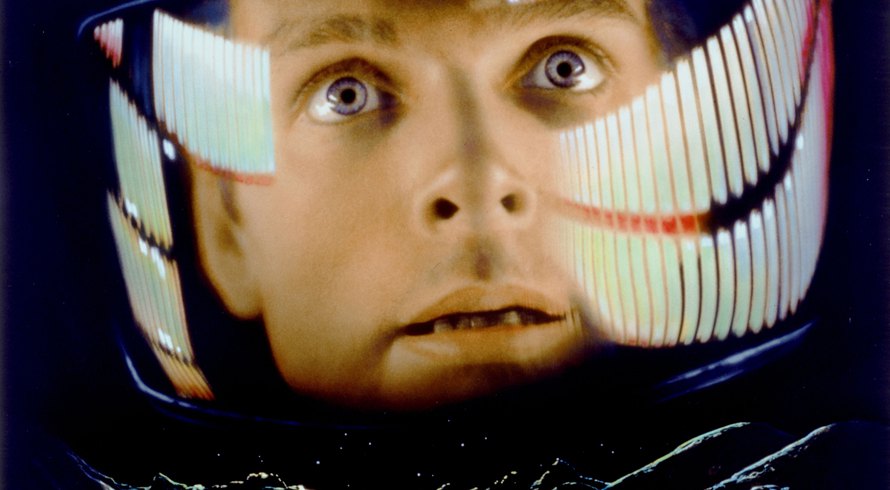
In an industry dominated by risk-averse studios and soulless sequels, where almost every other auteur has been relegated to straight-to-streaming releases, Christopher Nolan is the closest thing to a superstar there is left in the business, a dying breed of auteurs who can still get away with demanding gargantuan budgets and full creative freedom to any given studio.
You would be hard-pressed to find a name in the business that creates as much fuzz, anticipation and polarizing takes than him. And for all his faults, there’s probably no director that better encapsulates Gen Z’s cinema tastes than Nolan, with both casual moviegoers and hardcore cinephiles flocking to each of his new releases. He’s become something of a rarity among filmmakers, a box office darling with a foolproof blend of critical success and an army of worshiping stans. His films have proven to be the perfect storm in that they’re infinitely more accessible than arthouse cinema, but a tad bit more sophisticated than your average summer blockbuster. What he lacks in subtlety and characterization, he makes up for in jaw-dropping set pieces and mind-blowing concepts.
But long before he took audiences by storm with his labyrinthine brain melters, Christopher Nolan was your average nerd who grew up with cultural behemoths like Star Wars, Blade Runner and Superman and who learned to dream big in the golden age of science fiction. From Inception and Interstellar to his latest movie, Tenet, Nolan has repeatedly taken cues from some staples of the genre. He’s always been vocal about his biggest inspirations and influences growing up, giving filmmakers that paved the way their flowers too. Up next are ten of his all-time favorite sci-fi flicks.
1. 2001: A Space Odyssey (1968)
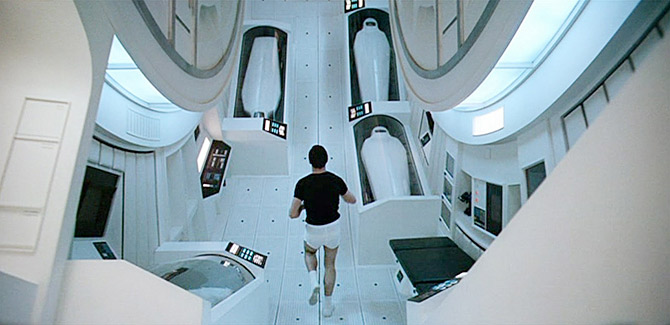
No surprises here. Kubrick’s epic could surely be traced back to any given sci-fi film of the last fifty years, but anyone who’s seen a Nolan movie (especially Interstellar) can recognize how integral 2001 was in defining his visual and narrative style.
Nolan fondly remembers being blown away by the movie when he first watched it with his dad as a 7-year-old in the biggest cinema theater in London, feeling “the extraordinary experience of being taken to another world onto a journey you never thought possible”.
With Kubrick, Nolan says, there’s a trust on simple storytelling and visuals to make an impression and convey emotions to the viewer, a “larger than life” quality that makes him embarrassed of his own work. If there was any remaining doubt of his reverence to 2001, Nolan recently oversaw and helped develop the latest restoration of a 70 mm print of the space classic, touring it around the world and screening it in the most prestigious film festivals.
2. Solaris (1972)
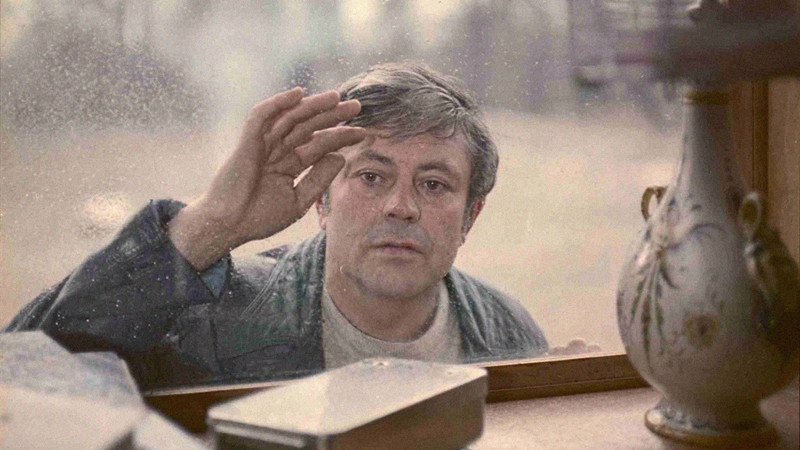
Not everyone was as enthusiastic about Kubrick’s epic as Nolan, starting with legendary soviet director Andrei Tarkovsky, who notoriously disliked it as cold and sterile. Almost as a counter, he came up with Solaris, a deeply spiritual film that employs a similar premise to explore the human condition. 2001 did it externally by looking ahead to the future of mankind, while Solaris did so introspectively, haunted by demons of the past and reminding us of our roots.
The movie follows a troubled psychologist dispatched to a space station near a planet with mysterious powers that brings out repressed memories and obsessions to those in its orbit. Through the materialized memory of his deceased wife, who interacts with the main character in the station, the movie masterfully explores themes of love, identity, self-consciousness and grief.
The cinematographer Nolan worked with in Interstellar introduced him to Solaris, which in his own words had an influence on elemental things in the story to do with wind, dust and water. The parallels don’t stop there, especially since both stories follow a widowed astronaut sent for a high-stakes intergalactic mission where they’re forced to confront their grief.
3. Primer (2004)
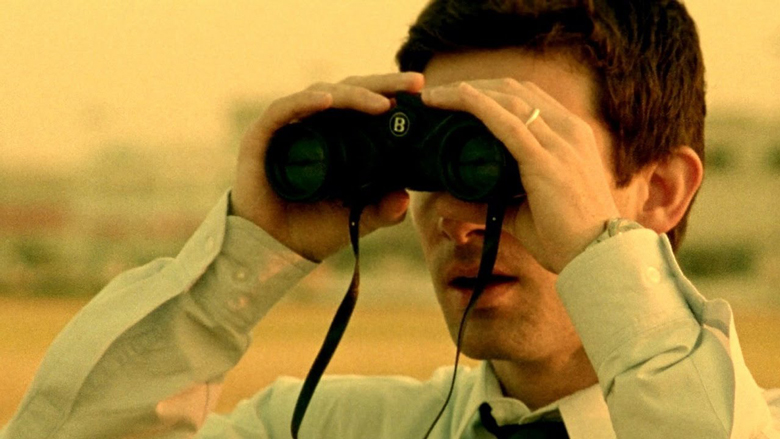
If after watching Memento or Inception you instantly jumped online and desperately looked for timeline diagrams to grasp the plot logistics, behold, because chances are you will need a handful more to wrap your head around Primer. In a nutshell, the movie follows two young engineers who unintentionally build a time travel machine in their basement. If that premise sounds too straightforward, rest assured, what follows is a totally bonkers story full of time-shifts, scientific jargon and existential implications.
In a sense, this Shane Carruth’s thriller is bursting with Nolan’s DNA, especially in how despite the constant info dumps, it’s deliberately obtuse as to reaffirm its own cleverness. Primer is certainly not the first movie to tackle the concept of time-travel, but what sets it apart is its methodical attention to detail, bringing some authenticity and consistency to the narrative rules and, more importantly, exploring the moral choices that come with such a godlike power.
4. Paprika (2006)
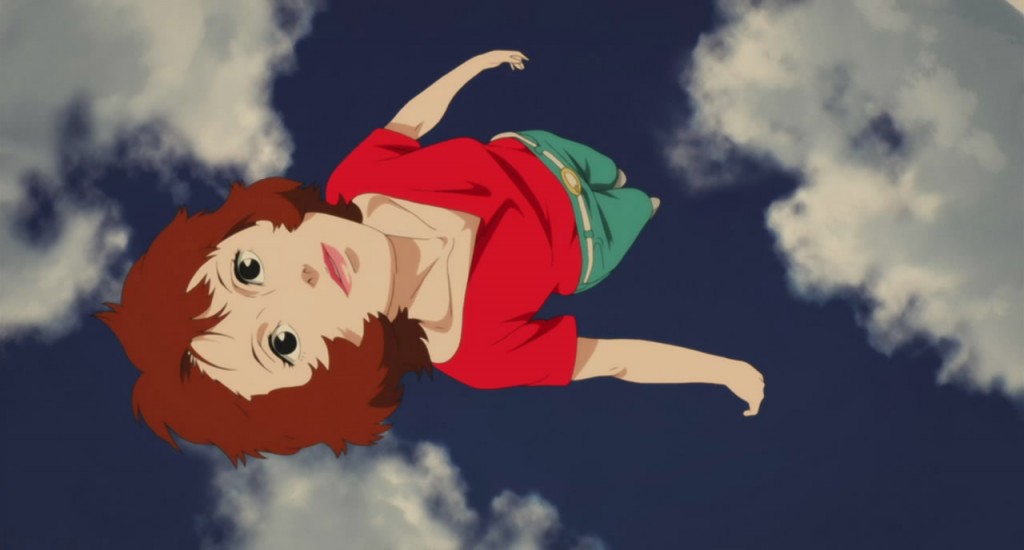
Everyone who has seen Inception surely remembers the dream-sharing devices, that memorable hallway fight scene where gravity constantly rotates, or the use of shattering mirrors to represent the real consciousness of the user leaking in and disrupting the dream. But Nolan’s seminal thriller owes a whole lot to Satoshi Kon, the man who introduced all those concepts four years earlier in his own mind-melting drama.
Paprika features futuristic machines used by therapists to enter their patient’s dreams, infiltrating their subconscious in a dreamscape that follows a particular set of laws and physics reminiscent of those seen in Inception. This gadget is originally designed to treat patients, but an unfinished prototype gets stolen, kicking off a psychedelic hunt to crack down the culprit where the layers between dream and reality blur together.
Only a genius like Kon could effortlessly replicate the disorienting and disjointed pace of dreams, thrusting the viewer into the character’s headspace and projecting their internalized trauma, insecurities and guilts. Inception is a fine imitation, but one that falls short when it comes to reaching the emotional highs of the original.
5. O-Bi O-Ba: The End of Civilization (1985)
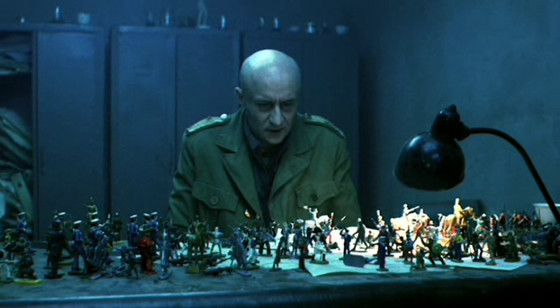
This bleak Polish thriller is set in a dystopian underground bunker where the remaining human survivors reside after a nuclear holocaust made the earth’s surface inhabitable. We follow Soft, a cynical government official tasked with convincing most of the restless population that the Ark, a miraculous savior ship, will soon come to their aid and bring them to paradise. As we follow our protagonist, we explore life inside the bunker through each of the survivor’s mental gymnastics as they cope with their impending doom.
Naturally, Soft and the rest of the top brass know the Ark is nothing more than an empty fabrication deliberately designed to appease the masses. But what starts as a political tool of distraction is eventually hailed as the ultimate salvation, with even the most skeptic holding a glimmer of hope.
Made in the tail-end of the Cold War, O-Bi O-Ba is a product of its time that reflects on the desolation and dreadful prospect of nuclear annihilation. It’s also a theological allegory that perfectly summarizes the need for myth and delusion in light of a completely hopeless reality.